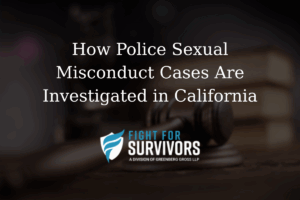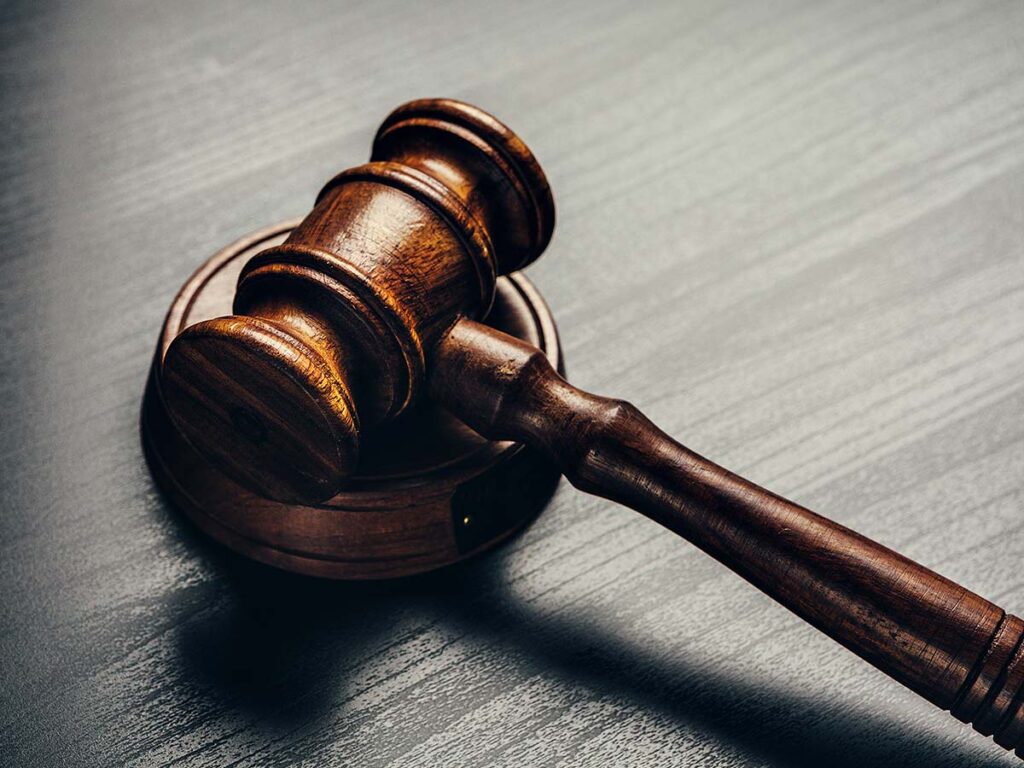
In recent years, California has faced increased scrutiny over the way it handles allegations of sexual misconduct by police officers. Survivors of such abuse often struggle to seek justice in systems that seem more protective of law enforcement officers than of the people they are sworn to serve. While departments may promise accountability, the actual process of investigating police sexual misconduct often lacks transparency, consistency, and urgency.
This blog post unpacks how sexual misconduct by peace officers is investigated in California, what survivors can expect from the process, and the systemic barriers that still protect officers accused of serious misconduct.

What Counts as Police Sexual Misconduct?
Police sexual misconduct refers to any inappropriate sexual behavior by police officers, correctional officers, or sheriff’s deputies that exploits their position of power. This includes:
- Coerced sexual activity during arrests or detentions
- Sexual assault or harassment during traffic stops or searches
- Threats of arrest or legal trouble in exchange for sexual favors
- Inappropriate relationships with vulnerable individuals under their supervision
In many cases, these acts are committed by officers while on duty. Victims may include detained individuals, people experiencing homelessness, or women who called the police for help.
The Scale of the Problem
California has seen a growing number of high-profile police sexual misconduct cases in recent years. In fact, investigation found that in some police departments, allegations of misconduct were hidden or quietly settled. Some agencies even allowed officers to resign without disciplinary action—creating “clean record agreements” that let them apply for new jobs in other jurisdictions without disclosing prior offenses.
Contact Us For A Free Legal Consultation. No Fee.
Call (833) 55-FIGHTAccording to investigative reporting programs and major outlets like the San Francisco Chronicle, nearly half of California officers fired for sexual misconduct were later rehired by other law enforcement agencies. This alarming trend raises serious questions about how police departments and prosecutors handle allegations, and why so many victims are left without justice.
The Investigation Process: What Survivors Should Know
When a survivor of sexual misconduct by law enforcement comes forward, the case may follow several paths depending on the department, city, and level of evidence. Here’s a breakdown of how the process typically works:
1. Filing a Complaint
Survivors can report misconduct through internal affairs divisions, civilian oversight boards, or external watchdog organizations. In some departments, victims may file anonymously, though this can limit the ability to follow up or seek criminal charges.
Unfortunately, many survivors are hesitant to report due to fear of retaliation, distrust in law enforcement, or concern that their allegations won’t be believed. The inherent power imbalance makes this type of abuse especially difficult to disclose.
2. Internal Investigations
Most cases begin with an internal review by the officer’s department. This often involves interviews with the victim, fellow officers, and potential witnesses, as well as a review of relevant body camera footage, arrest records, and text messages.
Internal investigations can be biased or incomplete, particularly if fellow officers or supervisors are reluctant to speak out. In many cases, departments have failed to fire or discipline officers even after credible allegations emerged.
3. Involvement of External Investigators
If the department deems the misconduct serious—or if the case gains media attention—it may be escalated to an independent oversight body or county investigators. Prosecutors may also begin a criminal investigation, especially in cases involving sexual assault or evidence of excessive force.
Survivors should know that California law enforcement agencies are now required to release misconduct records under Senate Bill 1421, passed in 2019. However, records can still be withheld for vague reasons like “ongoing investigations” or “personnel privacy.”
4. Potential Criminal Charges
In rare cases, criminal charges are filed against officers accused of sexual misconduct. These may include charges of rape, sexual battery, or abuse of authority. But prosecutors must contend with a high burden of proof, and many cases are dropped before reaching trial.
Even when evidence exists, prosecutors are often reluctant to pursue charges against police officers. Survivors may be subjected to intense scrutiny in court, and the defense will likely rely on the legal defense fund provided by the Peace Officers Research Association, which has defended officers accused of excessive force and sexual misconduct.
5. Disciplinary Action and Civil Suits
If criminal charges aren’t pursued or don’t result in conviction, departments may still impose disciplinary action such as suspension, demotion, or termination. However, clean record agreements often prevent the full extent of an officer’s history from being shared with other departments.
Survivors may also pursue civil lawsuits, particularly if their rights were violated during arrest or detention. An experienced attorney can help victims seek compensation for harm and pressure departments for greater accountability.
How the System Protects Officers, Not Victims
Despite high-profile media coverage and growing public demand for reform, the system still overwhelmingly favors the accused. Several factors contribute to this imbalance:
- Clean record agreements allow accused officers to quietly leave one department and get rehired elsewhere.
- Police chiefs and supervisors may minimize allegations to protect department reputation.
- Fellow officers may remain silent due to fear of retaliation or loyalty to the accused.
- Misconduct records are still difficult to access despite recent reforms.
- Body camera footage may go missing, be turned off, or not reviewed promptly.
- Disciplinary action is often limited to internal consequences rather than criminal justice outcomes.
As a result, many survivors are left wondering why the officer who harmed them is still on the job—or worse, working in another city.
Barriers to Justice
Even when victims muster the courage to report, they face overwhelming barriers:
- Fear of not being believed
- Retaliation or intimidation from police departments
- Lack of access to victim advocacy or legal services
- Deep mistrust of law enforcement
- Shame, trauma, or fear of reliving the abuse
In some cases, survivors have been detained or discredited by the very officers they accuse, or by their departments. Others are silenced with settlements that prevent them from speaking publicly.
This creates a chilling effect where most cases go unreported, and most offenders go unpunished.
What Needs to Change
To improve the way police sexual misconduct cases are investigated in California, systemic reform is necessary:
- Abolish clean record agreements that let officers escape accountability.
- Strengthen protections for victims who report abuse by officers.
- Mandate independent investigations in all sexual misconduct cases involving law enforcement.
- Make misconduct records fully transparent and accessible to the public.
- Train prosecutors and investigators to handle these cases with sensitivity.
- Support survivors with legal aid, trauma-informed services, and mental health support.
The law should apply equally to all—including those who wear a badge.

Survivors Deserve Justice
If you or someone you know has been harmed by a law enforcement officer, you have the right to speak out. You have the right to seek justice, to be believed, and to hold those in power accountable for their actions. Survivors of police sexual misconduct often feel invisible—but you are not alone.
Reach out to a trusted attorney, advocacy organization, or local victim services. There are people ready to stand beside you, help you understand your options, and demand the justice you deserve.
Frequently Asked Questions
What qualifies as police sexual misconduct?
Sexual misconduct by police includes any coercive or inappropriate sexual behavior by an officer—during stops, arrests, interrogations, or while on duty.
Can a police officer be fired for sexual misconduct in California?
Yes, though it depends on the department and circumstances.
Can survivors sue a police department for sexual assault?
Yes. Victims can file civil lawsuits for violations of their rights, trauma, and damages caused by misconduct. It’s important to consult an attorney as soon as possible.
Are these cases investigated by independent bodies?
Not always. Many investigations begin within the department. Independent oversight may be brought in for serious misconduct, but this isn’t guaranteed unless required by policy or public pressure.
Where can survivors get help?
Survivors can contact legal aid organizations, victim advocacy groups, or trauma-informed therapists. Local agencies in California are increasingly offering services tailored to victims of police misconduct.
Experienced Attorneys Who Will Listen And Fight For You
Speak To An Attorney Now »